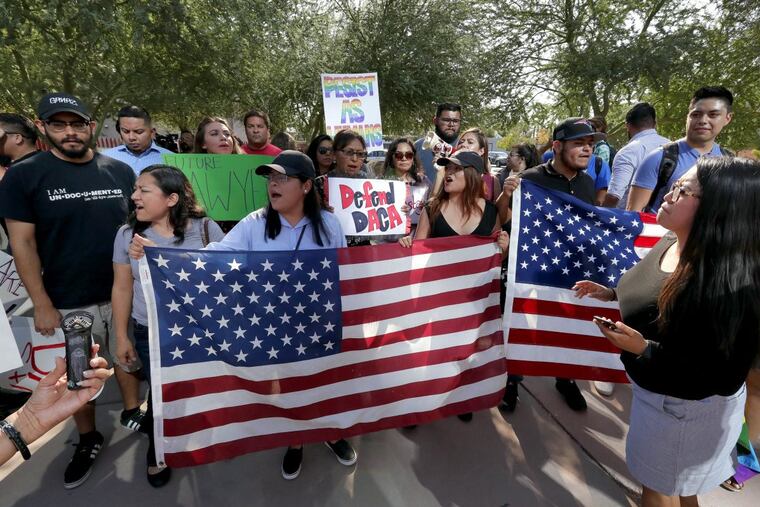Nation must honor the promise of DACA, and Bridge Act is a good start
Regardless of what one thinks about the children of undocumented individuals living in the United States, there is another issue in play here.

Thousands of Rutgers University students have staged peaceful protests over the last year in anticipation of dramatic changes to immigration policy.
The Trump administration's announcement Tuesday that it would end the Deferred Action for Childhood Arrivals (DACA) program unless Congress acts within the next six months wasn't the dramatic change that we had all feared, but a six-month reprieve is only of minor comfort.
It is now more urgent than ever that members of the House and Senate join together to make permanent the protections offered under DACA.
In short, DACA provides renewable temporary periods of deferred action from deportation, as well as eligibility for work permits, to undocumented individuals who were brought to this country as young children, have been growing up as typical neighborhood kids, and are today a common part of the fabric of virtually every community in America.
Under DACA, which was established by an executive order signed by President Barack Obama in 2012, protections were made available only to young people who came forward and in good faith provided their personal information and identities to the federal government. Those individuals were required to meet strict criteria regarding how they came to this country and how they have lived here. No one who has been convicted of a serious crime was eligible for deferred-action status.
By June 2016, four years after the DACA program was created, 845,000 young people had made application for temporary protections. Nearly 90 percent of the applicants nationwide, or more than 741,000 people, had been approved.
Ending the program would be wrong, unwise, and inconsistent with American values.
Regardless of what one thinks about the children of undocumented individuals living in the United States, there is another issue in play here — one of fairness and of honoring our commitments.
More than 800,000 people came forward and provided information about who they are, where they live, how they live, and where they came from based on a promise from the federal government that providing this information meant protection from the fear of immediate deportation.
Ending the program would be the government saying, in effect, "You didn't really expect us to keep our word, did you?"
That is simply un-American. It tears at the very fabric of this nation. It sends a signal loud and clear that you cannot trust the government, and if you are gullible enough to do so, you are taking your future in your hands.
There is a bipartisan legislative solution to address the DACA dilemma. It would need some modification, but it is a good starting point.
The aptly named Bridge Act, in an amended form, would extend DACA's protections while comprehensive immigration reform was developed. The act's cosponsors are Republicans and Democrats, liberals, moderates, and conservatives, including U.S. Sens. Lindsey Graham (R., S.C.), Dick Durbin (D., Ill.), Lisa Murkowski (R., Alaska), and Dianne Feinstein (D., Calif.).
Graham, who was not a DACA supporter in 2012 and is not one today, noted upon introduction of the act: "I do not believe we should pull the rug out and push these young men and women — who came out of the shadows and registered with the federal government — back into the darkness. Our legislation continues to provide legal status to them for three years as Congress seeks a permanent solution. These young people have much to offer the country, and we stand to benefit from the many contributions they will make to America."
I couldn't agree more.
Cultural and ethnic diversity are essential elements of our identity and a particular strength of Rutgers as a public research university. Like similar institutions around the country, we value and rely upon the contributions that all our students, faculty, staff, and researchers — from every background and place of birth — make to the richness of our academic community.
The students who will define our future, and the faculty and researchers who make breakthrough discoveries in the sciences and the humanities, know that academia is by its nature international, and we must be vigilant to protect and advocate for the free exchange of ideas on our campuses and around the world.
No matter where one stands on the propriety of DACA, the Senate sponsors of the Bridge Act are right: Extending protections for these young people is indisputably a matter of fairness and equity.
In America, we expect to keep our word.
Robert Barchi is the president of Rutgers, the State University of New Jersey. president@rutgers.edu